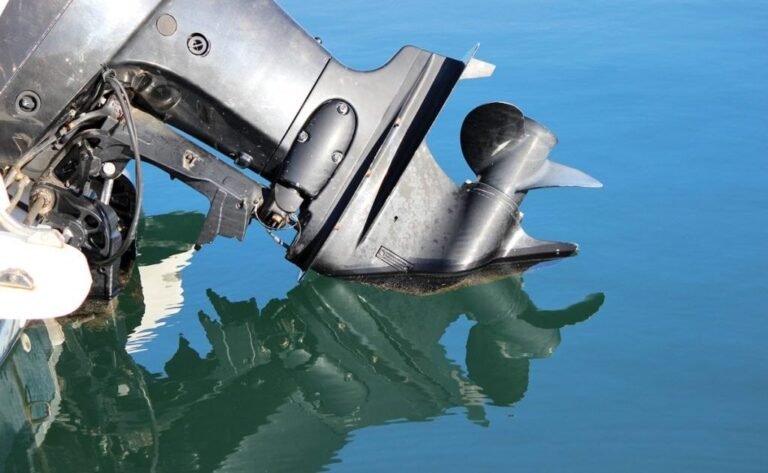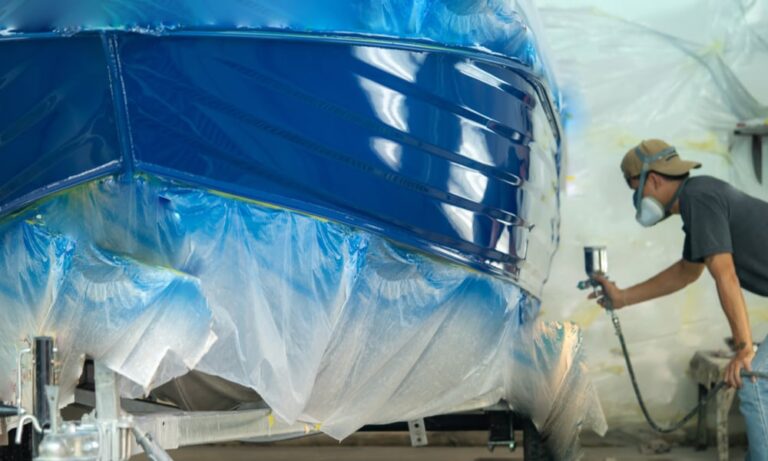How Long Do Fiberglass Boats Last | Lifespan of Fiberglass Boats 2025
Fiberglass boats are designed to last for many years with proper care and maintenance. However, the lifespan of a fiberglass boat can vary depending on the quality of the materials used and how it is used. With proper care, a fiberglass boat can last for decades.
If you’re thinking about buying a fiberglass boat, you might be wondering how long they last. The good news is that fiberglass boats are built to last and can provide years of enjoyment on the water. However, there are a few things that can affect the lifespan of your boat, including how well you maintain it and where you keep it stored.
With proper care, your fiberglass boat could last for decades.
One of the most important things you can do to extend the life of your fiberglass boat is to properly maintain it. This includes washing it down after every use, waxing it regularly, and keeping it covered when not in use.
It’s also important to have any repairs made as soon as possible so that small issues don’t turn into big problems.
Where you store your boat is also important. If possible, keep your boat in a garage or shed where it will be protected from the elements.
If you must keep it outside, make sure it’s on a trailer or lift so that it’s not sitting directly on the ground where moisture can cause damage.
With proper care, your fiberglass boat will provide years of enjoyment on the water. So if you’re looking for a vessel that will stand the test of time, consider investing in a fiberglass boat – chances are good that it will serve you well for many years to come!
Problems With Old Fiberglass Boats
If you’re thinking about buying an old fiberglass boat, there are a few things you should be aware of. First and foremost, fiberglass boats are not indestructible – they will eventually succumb to the elements and wear out. Secondly, repair and maintenance can be expensive, particularly if you need to replace major components like the hull or deck.
And finally, old fiberglass boats may not have all the modern bells and whistles that newer models do – so you could be in for a bit of a surprise when it comes to performance.
Disadvantages of Fibreglass Boats
Fibreglass boats are often touted as being virtually maintenance-free, but that doesn’t mean they don’t have any disadvantages. Here are a few things to keep in mind if you’re considering a fibreglass boat:
1. They’re not indestructible.
Fibreglass boats can be damaged just like any other type of boat. They can be scratched, dented, and even cracked if they hit something hard enough.
2. They’re not necessarily the lightest option.
While some fibreglass boats are designed to be lightweight, others can be quite heavy. This is something to keep in mind if you plan on transporting your boat frequently or want to be able to easily move it around on your own.
3. They can be more expensive than other types of boats.
Fibreglass boats tend to cost more upfront than boats made from other materials like aluminum or wood. However, they may last longer and require less maintenance over time, so you may end up saving money in the long run.
How Long Do Boats Last in Salt Water
It is no secret that salt water can be tough on boats. But just how long do boats last in salt water? The answer, unfortunately, is not cut and dry.
There are a number of factors that can affect the lifespan of a boat in salt water.
One of the most important factors is the type of boat. Some boats are simply not built to withstand the rigors of salt water.
For example, aluminum boats are particularly susceptible to corrosion from salt water. Fiberglass and other composite materials are also not as durable as some other types of boat construction when it comes to exposure to salt water.
Another important factor is how often the boat is used in salt water.
Obviously, the more often a boat is used in salt water, the greater the chance that it will succumb to corrosion or other damage. This is why it is so important to rinse off your boat after every use in salt water, regardless of how short your time on the water was.
Finally, where you keep your boat can also have an impact on its lifespan in salt water.
If you live near the coast or keep your boat in a marina with direct access to salty waters, your boat will be at greater risk than if it was stored inland or kept on fresh waters most of the time.
So how long do boats last in salt water? The answer depends on a number of factors but keeping your boat clean and well-maintained will go a long way towards extending its life no matter where you keep it or how often you use it in salty waters.
How Long Do Aluminum Boats Last
When it comes to boatbuilding materials, aluminum has a lot going for it. It’s strong yet lightweight, durable, and corrosion-resistant. So it’s no wonder that aluminum boats are so popular.
But how long do they last?
Aluminum boats are built to last, but just like any other type of boat, they will eventually need to be replaced. The average lifespan of an aluminum boat is 20-30 years, with proper care and maintenance.
Of course, this can vary depending on the quality of the boat and how well it’s been cared for.
If you’re thinking about buying an aluminum boat, or if you already own one, make sure to give it the TLC it needs to stay in good shape for years to come. With a little bit of effort, your aluminum boat can provide you with many years of enjoyment on the water.
How Long Does Fiberglass Last in Skin
Fiberglass is a material that is made from fine glass fibers. It is often used in construction and other industries because it is strong and durable. However, when fiberglass comes into contact with skin, it can cause irritation.
In some cases, this irritation can lead to skin problems such as rashes or burns.
So how long does fiberglass last in skin? It depends on the person’s individual reaction to the material.
For some people, the irritation caused by fiberglass will go away within a few hours. Others may experience more severe reactions that can last for days or even weeks. If you have any concerns about your reaction to fiberglass, you should see a doctor for further evaluation.

Credit: www.discoverboating.com
Are Fiberglass Boats Worth It?
There are many reasons to consider a fiberglass boat. Fiberglass is a very versatile material that can be used in a wide variety of applications, from small pleasure boats to large commercial vessels. Here are some of the key benefits of fiberglass boats:
1. Fiberglass is extremely strong and durable. It is not susceptible to rotting or corroding like other materials, so it will last much longer with proper care.
2. Fiberglass is very easy to maintain.
It can be easily cleaned and waxed to keep it looking new for years.
3. Fiberglass boats are very stable and efficient in the water. They track well and provide a smooth ride even in rough conditions.
4. Many fiberglass boats come equipped with all the latest features and amenities that you would expect in a modern vessel, such as GPS, fish finders, and more.
5. Fiberglass boats hold their value extremely well over time, so you can always get your money back out if you decide to sell later on down the road.
Does Fiberglass Degrade Over Time?
No, fiberglass does not degrade over time. In fact, it is one of the most durable materials available and is often used in building construction and automotive manufacturing. Fiberglass is made from glass fibers that are bonded together with a resin, making it strong and resistant to damage.
Do Fiberglass Boats Crack Easily?
No, fiberglass boats do not crack easily. Fiberglass is a very strong and durable material that can withstand a lot of wear and tear. However, if you do happen to accidentally drop your fiberglass boat or hit it against something hard, it is possible for the hull to crack.
If this happens, it is important to get the boat repaired as soon as possible so that it does not leak or sink.
Do Fiberglass Boats Rot?
Over the years, there have been many different types of boats constructed from a variety of materials. Some are made from wood, others from aluminum or steel, and still others from fiberglass. So, which type of boat is the best?
And more specifically, do fiberglass boats rot?
To answer this question, we must first understand what fiberglass is. Fiberglass is a composite material made from glass fibers and a resin.
The glass fibers are spun into yarn and then woven into a fabric. The fabric is then wetted with the resin, which can be either polyester or epoxy. The resulting material is extremely strong and durable.
So now that we know what fiberglass is, let’s get back to the question at hand: do fiberglass boats rot? The short answer is no; fiberglass boats do not rot. This is because there is no organic material in fiberglass that could decompose and cause rotting.
However, this does not mean that fiberglass boats are indestructible; they can still be damaged by sunlight, extreme temperatures, physical impact, and chemical exposure (such as fuel or cleaners). But if properly cared for, a fiberglass boat will last for many years with little to no degradation.
One of the main benefits of owning a fiberglass boat is that they require very little maintenance compared to other types of boats.
For example, you will never have to worry about painting or varnishing your boat like you would with a wooden boat. And unlike an aluminum or steel boat, you don’t have to worry about corrosion eating away at your hull . . . meaning you’ll likely get many more years out of your investment!
Fiberglass boat from China
Conclusion
The blog post states that fiberglass boats can last a long time if they are properly maintained. It is important to keep the hull clean and free of debris, and to inspect it regularly for any signs of damage. Additionally, it is important to protect the boat from UV rays and extreme weather conditions.
By taking these measures, you can help ensure that your fiberglass boat will last for many years.





